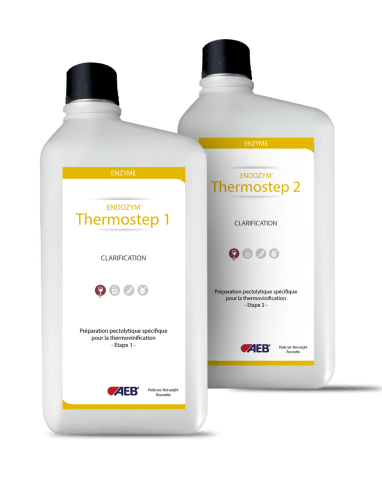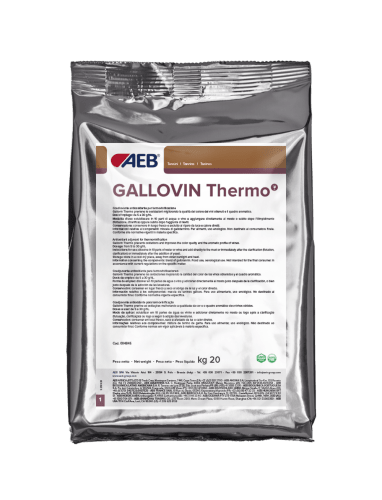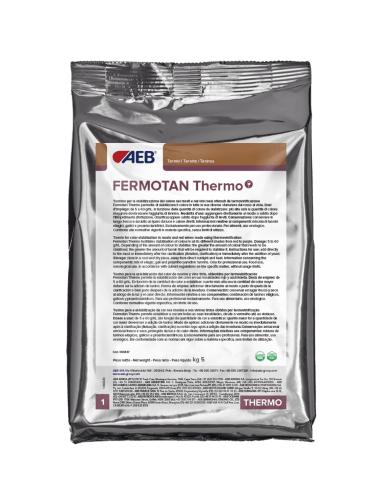Coadjuvants for thermovinification
 Filter
Filter
THERMOVINIFICATION: MUST HEAT TREATMENT
Thermovinification is a production technique used to improve the extraction of colour from the grapes, as well as correct the must obtained from grapes affected by rot. This winemaking process heats the must inactivating the moulds and enzymes present. Mainly suitable for the vinification of red grapes for the production of young and ready-to-drink wines, it guarantees a continuous production cycle, which can be easily automated and leads to uniform results. In particular, the heat treatment of must accelerates cell plasmolysis of the skins, resulting in shorter maceration times. This treatment thus avoids prolonged contact with the pomace, allowing a more controlled fermentation. The disadvantages of this technique include the reduction of the volatile constituents of the grapes and a greater susceptibility of the wine to oxidation.
AEB ADJUVANTS FOR THERMOVINIFICATION: ANTIOXIDANTS AND SPECIFIC ENZYMES
Our line of adjuvants for thermovinification includes products with different formulations. To prevent oxidation, improve the colour and aromatic profile of the wines, you can use an antioxidant adjuvant. In the range, we offer a mixture of tannins designed to stabilise the colour of musts and red wines obtained from thermovinification. The mixture of proanthocyanidinic tannins obtained from grapes, seeds, skin and wood allows the colour to be stabilised in all its different shades, from red to purple. Lastly, there are pectic enzyme preparations which when used together improve clarification, with a positive effect on the quality of the fermentation. The wines obtained will be more perfumed, with a fresh, well-defined bouquet, guaranteeing the recognition of the varietal aromas.


 China
China
 Hungary
Hungary
 United Kingdom
United Kingdom







